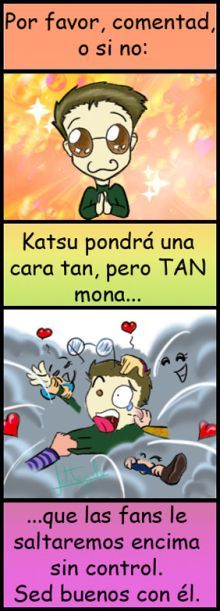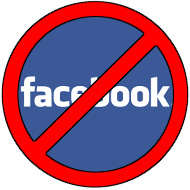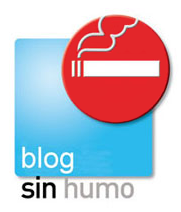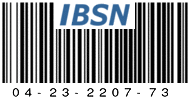"IN THE former Soviet Union, in the late 1950s and 60s, many books that questioned the political system began to be circulated privately in mimeographed form. Their authors never earned a penny in royalties. On the contrary, they were persecuted, denounced in the official press, and sent into exile in the notorious Siberian gulags. Yet they continued to write.
Why? Because they needed to share what they were feeling. From the Gospels to political manifestos, literature has allowed ideas to travel and even to change the world.
I have nothing against people earning money from their books; that's how I make my living. But look at what's happening now. Stop Online Piracy Act (S.O.P.A) may disrupt internet. This is a REAL DANGER, not only for Americans, but for all of us, as the law – if approved – will affect the whole planet.
And how do I feel about this? As an author, I should be defending 'intellectual property', but I'm not.
Pirates of the world, unite and pirate everything I've ever written!
The good old days, when each idea had an owner, are gone forever. First, because all anyone ever does is recycle the same four themes: a love story between two people, a love triangle, the struggle for power, and the story of a journey. Second, because all writers want what they write to be read, whether in a newspaper, blog, pamphlet, or on a wall.
The more often we hear a song on the radio, the keener we are to buy the CD. It's the same with literature.
The more people 'pirate' a book, the better. If they like the beginning, they'll buy the whole book the next day, because there's nothing more tiring than reading long screeds of text on a computer screen.
1. Some people will say: You're rich enough to allow your books to be distributed for free.
That's true. I am rich. But was it the desire to make money that drove me to write? No. My family and my teachers all said that there was no future in writing.
I started writing and I continue to write because it gives me pleasure and gives meaning to my existence. If money were the motive, I could have stopped writing ages ago and saved myself having to put up with invariably negative reviews.
2. The publishing industry will say: Artists can't survive if they're not paid.
In 1999, when I was first published in Russia ( with a print- run of 3,000), the country was suffering a severe paper shortage. By chance, I discovered a ' pirate' edition of The Alchemist and posted it on my web page.
A year later, when the crisis was resolved, I sold 10,000 copies of the print edition. By 2002, I had sold a million copies in Russia, and I have now sold 12 million.
When I traveled across Russia by train, I met several people who told me that they had first discovered my work through the ' pirated' edition I posted on my website. Nowadays, I run a 'Pirate Coelho' website, giving links to any books of mine that are available on file- sharing sites. And my sales continue to grow — nearly 140 million copies world wide.
When you've eaten an orange, you have to go back to the shop to buy another. In that case, it makes sense to pay on the spot. With an object of art, you're not buying paper, ink, paintbrush, canvas or musical notes, but the idea born out of a combination of those products.
'Pirating' can act as an introduction to an artist's work. If you like his or her idea, then you will want to have it in your house; a good idea doesn't need protection.
The rest is either greed or ignorance."
---------------------------------------
"En la antigua Unión Soviética, a finales de los 50 y de los 60 muchos libros que cuestionaban el sistema político empezaron a circular en privado en formato mimeográfico. Sus autores nunca ganaron ni un solo céntimo en derechos de autor. Al contrario, fueron perseguidos, denunciados en la prensa del régimen y enviados al exilio en los infames gulags siberianos. Y sin embargo, continuaron escribiendo.
¿Por qué? Porque necesitaban compartir lo que sentían. Desde los Evangelios hasta los manifiestos politicos, la literatura siempre ha permitido que las ideas viajaran de un lado a otro e incluso que cambiaran el mundo.
No tengo nada en contra de la gente que gana dinero con sus libros, así es como yo me gano la vida. Pero miren lo que está sucediendo ahora. La Ley para Detener la Piratería Online, S.O.P.A., puede trastocar internet. Este es un peligro REAL, no solo para los americanos sino para todos nosotros, ya que la ley, si se aprueba afectará a todo el planeta.
¿Y cómo me siento yo sobre todo esto? Como autor que soy, debería defender la "propiedad intelectual", pero no lo hago.
¡Piratas del mundo, unios y piratead todo lo que he escrito!
Aquellos tiempos en los que cada idea tenía un dueño se han ido para no volver jamás. Primero, porque lo que prácticamente todo el mundo hace es reciclar los mismos cuatro temas: una historia de amor entre dos personas, un triángulo amoroso, la lucha por el poder, y la historia de un viaje. En segundo lugar, porque todos los escritores quieren que lo que escriben sea leído, ya sea en un periódico, en un blog, en un folleto o en una pared.
Cuanto más escuchamos una canción en la radio, más probable es que acabemos comprándonos el CD. Con la literatura ocurre lo mismo. Cuanto más "piratea" la gente un libro, mejor. Si les gusta cómo empieza se comprarán el libro el día siguiente, porque no hay nada que canse más que leer largos párrafos de texto en la pantalla de un ordenador.
1. Algunos me dirán, "Sí, pero es que tú eres lo bastante rico como para permitirte que tus libros sean distribuidos gratis"
Eso es cierto, soy rico. ¿Pero es por el dinero por lo que yo empecé a escribir? No. Mi familia y mis profesores me dijeron siempre que escribir no tenía futuro. Comencé a escribir, y sigo haciéndolo, porque me proporciona placer y le da un sentido a mi existencia. Si mi motivación fuera el dinero, hace tiempo que podría haber dejado de escribir y haberme ahorrado un montón de críticas invariablemente negativas.
2. La industria editorial me dirá, "Los artistas no pueden sobrevivir si no se les paga".
En 1999, cuando por primera vez me publicaron un libro en Rusia (con una tirada de 3000 ejemplares), el país sufría una severa escasez de papel. Por casualidad me encontré con una edición "pirata" de "El Alquimista" y la colgué en mi página web. Un año más tarde, cuando se solucionó la crisis, vendí 10.000 ejemplares de la edición impresa. En 2002 había vendido un millón de copias en Rusia, y actualmente son ya 12 millones.
En un viaje que hice a través de Rusia en tren, me encontré con varias personas que me dijeron que habían descubierto mi libro por la edición "pirata" que había posteado en mi web. En la actualidad llevo una web llamada "Piratead a Coelho", en la que voy poniendo los enlaces a cualquiera de mis libros que encuentro en los sitios de intercambio de archivos. Y mis ventas siguen aumentando, con casi 140 millones de ejemplares de mis libros vendidos en todo el mundo.
Cuando te comes una naranja, tienes que volver a la tienda para comprar otra. En ese caso tiene sentido pagar en el momento. Con una obra artística no compras papel, tinta, lienzos o notas musicales, sino la idea que surge de la combinación de todos esos productos.
"Piratear" puede servir para dar a conocer la obra de un artista. Si te gusta su idea, entonces querrás tenerla en tu casa; una buena idea no necesita protección.
Lo demás, es ignorancia o codicia"
Paulo Coelho, 20-1-2011
(la traducción es mía, disculpad los posibles errores o inexactitudes que haya)
Y ante esto, a mí no me queda otra cosa más que ponerme en pie, quitarme el sombrero y APLAUDIR a Coelho (que no lo olvidemos, no es un escritor de poca monta cualquiera, sino todo un best-seller mundial) hasta que me sangren las manos. Cuánto、pero de verdad, cuantísimo deberían muchos tomar nota y aprender de lo que este hombre dice en estos pocos párrafos.
SOPAに反対する、有名な作家パウロ・コエーリョのブログからの記事。
「一番大切なのはお金より、作家の考えや思想が世界中を循環していくことだと思っていて、私の作品の違法コピーがされていっても大丈夫だ。 違法コピーをもらった人は沖に入ったら、後本屋で印刷された本を買う可能性もあるから」、と言っています。
こんな思い方は応援すべきですね。
 El gato contemplando la flor
El gato contemplando la flor Arañas y hormigas hechas con latas de aluminio
Arañas y hormigas hechas con latas de aluminio
















































.jpg)


+18.20.50.png)




















